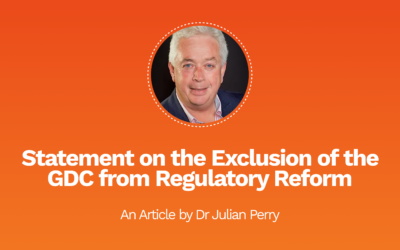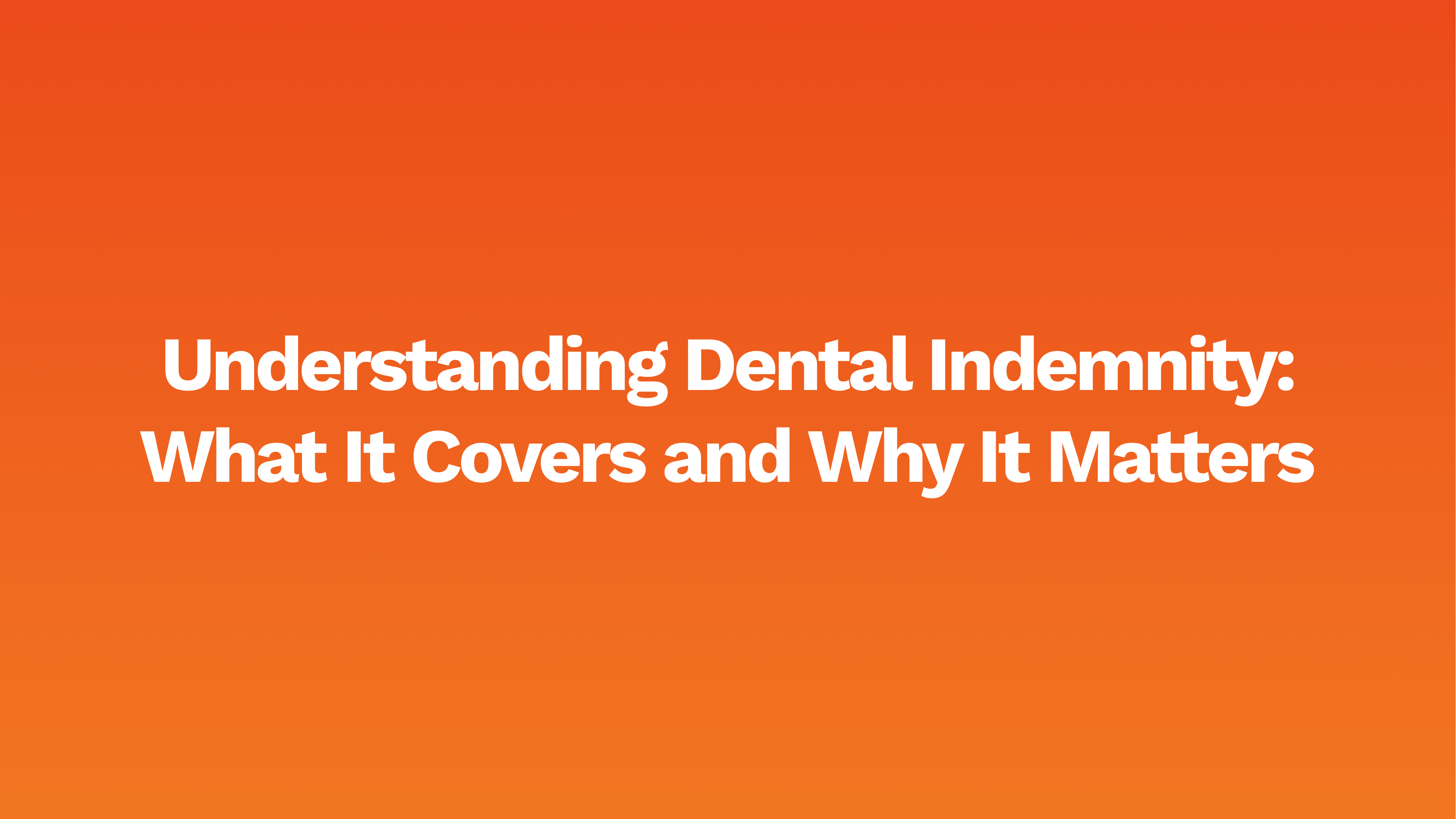Be it motor, household or dental indemnity, insurance is seldom a joyous purchase.
Spending thousands of pounds on something one hopes never to use seems counter-intuitive. But it may, given certain circumstances, turn out to be the most important purchase you ever make.
August to October are peak season in the world of dental indemnity. At Densura, these months see around 50% of our dentists renewing their cover. Traditionally indemnity was purchased as a part of Dental Defence Organisation (DDO) membership.
Over the past ten years, however, nearly a third of dentists have opted to move from discretionary DDO membership to insurance. This competitive environment has helped dentists both in terms of the cost of indemnity, and the coverage available.
Not all insurance is the same
Quite often, you will hear arguments for and against insurance versus discretionary DDO membership. In reality, however, the DDOs have done a relatively good job of looking after their members.
The competition brought by insurance has helped keep control of pricing. It has also helped improve the service offered to dentists by the DDOs.
In some respects, the distinction between the DDOs and insurers may be a moot point as the government has promised a reform of indemnity this year which may see the regulation of the DDOs and their transformation to insurance companies. This would mean the same basis of cover being offered by all…or would it?
The fact is, not all insurance is the same. Pricing is, of course, important but while something of a ‘grudge’ purchase, good quality insurance is invaluable when the unexpected and sometimes disastrous happens. Cheapest can end up costing the most.
So, what does good look like?
- Dento-legal advice. Your indemnifier should offer a strong advisory team. First port of call in the event of a patient complaint should be a team of practising legally-qualified dentists. It is important that your problem is dealt with by a peer who knows what it is like in practice. This has never been more true than in this post-covid environment
- Expert legal support. The dental advisers should be supported by an in-house team of clinical negligence lawyers who in turn should have access to leading law firms and barristers’
- Support should be immediate. Most complaints can be nipped in the bud if they are dealt with empathetically, robustly, and quickly. Most patients don’t want to revert to suing their dentist-they want to be heard, taken seriously and to have their issues addressed. A strong letter of response can deter the hardiest of claimants, or their lawyers
- Comprehensive regulatory cover. No dentist wants to be in front of the GDC and an experienced indemnity provider deploying expert dental advisers, in-house lawyers, and barristers can avoid a hearing in the first place or achieve a positive outcome
- Broad cover. Cover should:
- Be on an ‘occurrence’ basis with no need for run-off cover
- Provide retroactive cover where required
- Provide cover for all of your work including medico-legal reports and Good Samaritan acts
- Have no excess
- Have a minimum limit of indemnity of £10m
- Include access to CPD
- Provide cover for tax investigations
- Provide vicarious liability cover where required.
Take advice
All of this said, cost is a factor and, here, dentists can help themselves. Filling in a proposal form and providing information is a pain. But, if you provide accurate information around hours you work and detail exactly what you do, insurers can produce a lower premium.
Any patient complaints or claims should be explained as these need not impact your pricing if articulated fully.
Most importantly, take advice. A broker should be able to guide your thinking and assist you to obtain the best deal. Yes, it takes a little work but once in place, good insurance is there to protect you during the whole year. Helpful advice should be on tap whenever you need it.
Author: Laura Blundell



